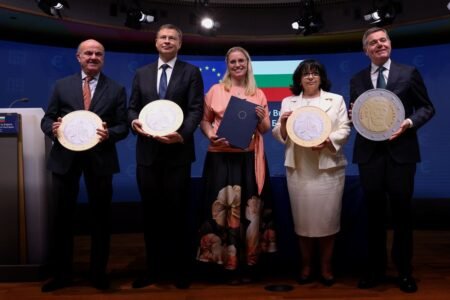(BRUSSELS) – Financial products that claim to be sustainable will have to prove it, following the European Parliament’s green light Thursday to new rules aimed at preventing ‘greenwashing’ and boosting green investments.
The new legislation on sustainable investments lays down six environmental objectives and allows economic activity to be labelled as environmentally sustainable if it contributes to at least one of the objectives without significantly harming any of the others.
The objectives are:
- climate change mitigation and adaptation;
- sustainable use and protection of water and marine resources;
- transition to a circular economy, including waste prevention and increasing the uptake of secondary raw materials;
- pollution prevention and control; and
- protection and restoration of biodiversity and ecosystems.
Establishing clear European “green” criteria for investors is seen as key to raising more public and private funding so that the EU can become carbon neutral by 2050 as set out in Europe’s Green Deal as well as to prevent ‘greenwashing’.
Europe needs around EUR 260 billion per year in extra investment to achieve its 2030 climate and energy targets, according to Commission estimates.
“The legislation also includes a clear mandate for the Commission to start defining environmentally harmful activities,” said the Parliament’s rapporteur Bas Eickhout MEP: “Phasing out those activities and investments is as important to achieving climate neutrality as supporting decarbonised activities.”
Activities that are incompatible with climate neutrality but considered necessary in the transition to a climate-neutral economy are labelled transition or enabling activities. They will need to have greenhouse gas emissions levels corresponding to the best performance in the sector.
Solid fossil fuels, such as coal or lignite, are excluded, but gas and nuclear energy could potentially be labelled as an enabling or transitional activity in full respect of the “do no significant harm” principle.
The law enters into force after publication in the Official Journal. The Commission says it will regularly update the technical screening criteria for transition and enabling activities. By 31 December 2021, it will need to review them and define criteria to identify activities that have a significant negative impact.








